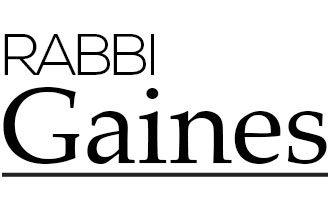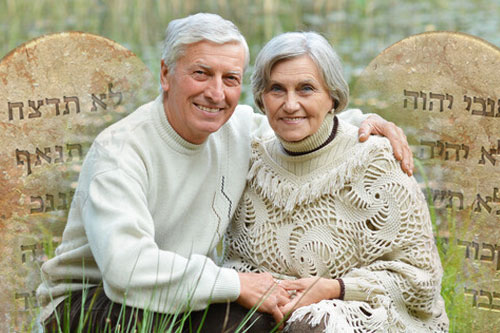The Jerusalem Talmud (Jewish Oral tradition composed in Israel) teaches, when quoting a Sage that is either living or deceased, visualize the master’s face as if seated before you. By doing so, explain the Rabbis, you connect the novel insight - the teaching of the moment - to its source (the soul that expounded it), thus honoring the Sage from whom it came. Kavod (“Respect” in Hebrew) is a powerful and transformative act that touches everything and everyone.
Judaism teaches that there are, in particular, 5 whom must be given proper honor: God, parents, teachers, creation, and, oneself. We have already given an example of respecting a Sage (a teacher), let’s now speak about respecting one’s parents, for it is a deferential act that society still, in many places, practices. So high (in the eyes of God) is the duty to honor one’s parents that it merits to be the 5th of the 10 Commandments, “Honor your father and mother” (Exodus 20:12). And what is the heavenly reward for doing so? Concludes the verse, “In order that your days will be elongated,” i.e. extended. Meaning, long life - extended time in this world - is the heavenly gift bestowed for honoring (properly) one’s parents.
Now comes the strange part, the 10 commandments are written, as explained in Exodus, five opposite five, i.e. five Commandments on a right tablet (Commandments between God and man, e.g. “Remember the Shabbat to keep it holy”) and five Commandments on a left tablet (Commandments between a man and his fellow, e.g. “Do not murder”). Question: Since the 5 commandments on the right tablet are those that relate, specifically, to God and man, why is the Commandment to honor one’s parents written there - it is the 5th commandment immediately following the Commandment to remember the Sabbath? Should it not be written on the left tablet, the side dealing with the core virtues that connect a man to his fellow? Explain the Sages, honoring one’s parents is synonymous with honoring God, for husband and wife are partners with God in the act of creation (man and woman provide the body and God provides the soul)! When we honor our parents by going above and beyond to ensure their every need is met (as demonstrated by many a great Talmudic Sage), we honor not only the “suppliers of the body,” but God Almighty who supplies the soul (for without the body, the contribution of the parents, the Divine soul, the contribution of God, would have no rooting/presence in this world. As such, it could not carry out its Divine mission to create a House for God in this world - by transforming physical/material things into spiritual/Godly acts.)
How careful we must therefore be when it comes to honoring our parents, for beyond our intuitive sense that they deserve our deepest respect for the time they sacrificed on our behalf is the Torah’s stance that they are actual partners with God - in the act of our creation. May we thus always merit to see (and deeply sense) the Divine in our parents so we may come to truly love, cherish, and honor them always.




